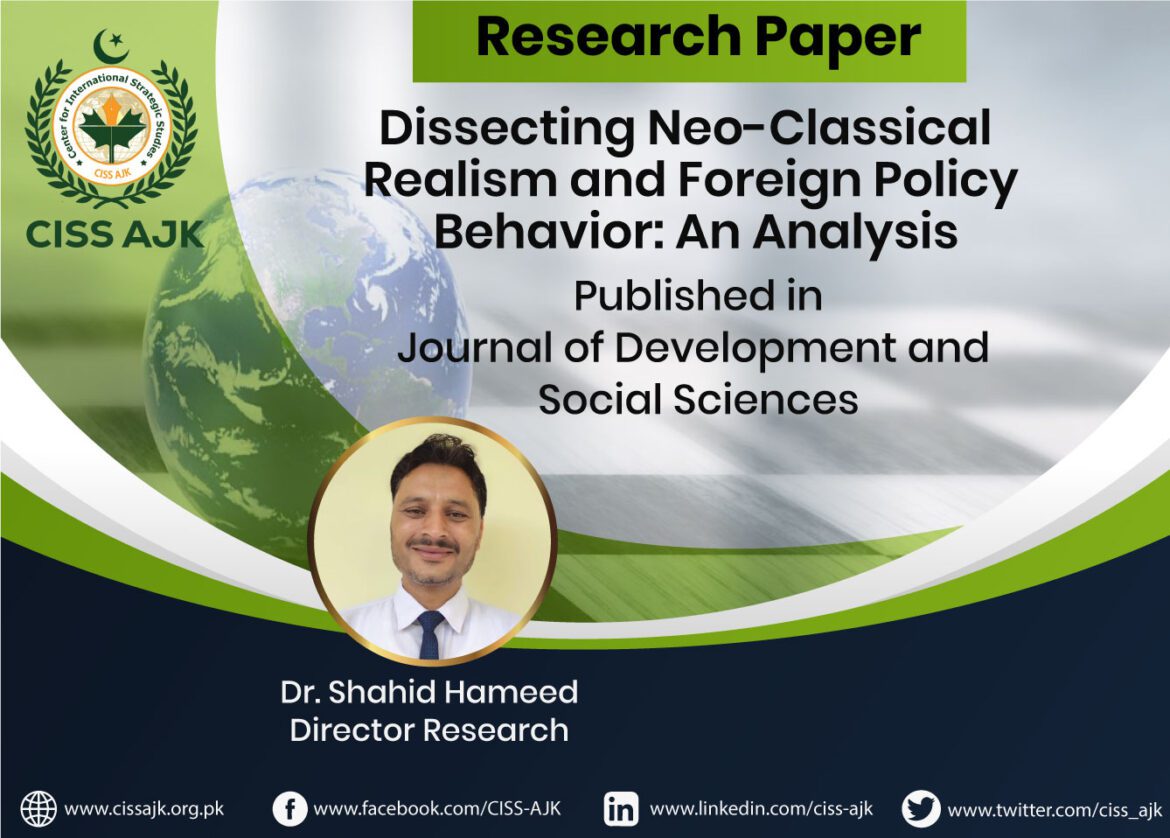Abstract
The current study explores and dissects the philosophical roots of neo-classical realism. The analysis aims to disclose the theoretical underpinnings of this framework that enable it to describe the state’s behavior. The analysis is based upon a comparative approach that helps to understand the complex synthesis scheme of the neo-classical realist framework. The neo-classical realism is based upon an extensive array of internal and external sets of variables that help to explain foreign policy actions. The bedrock of foreign policy behavior of a state is intricately woven from these interplaying variables. As a matter of fact, the neo-classical realist perspective on security and the distribution of power lays the foundation for the analysis of foreign policy behavior of states. The discussion reveals that the major portions of its attributes are constructed through neo-realist routes synthesizing the domestic intervening variables. Though the framework has the capacity to incorporate complexities of foreign policy and decision-making, however, it cannot be considered an independent theory for foreign policy studies.



